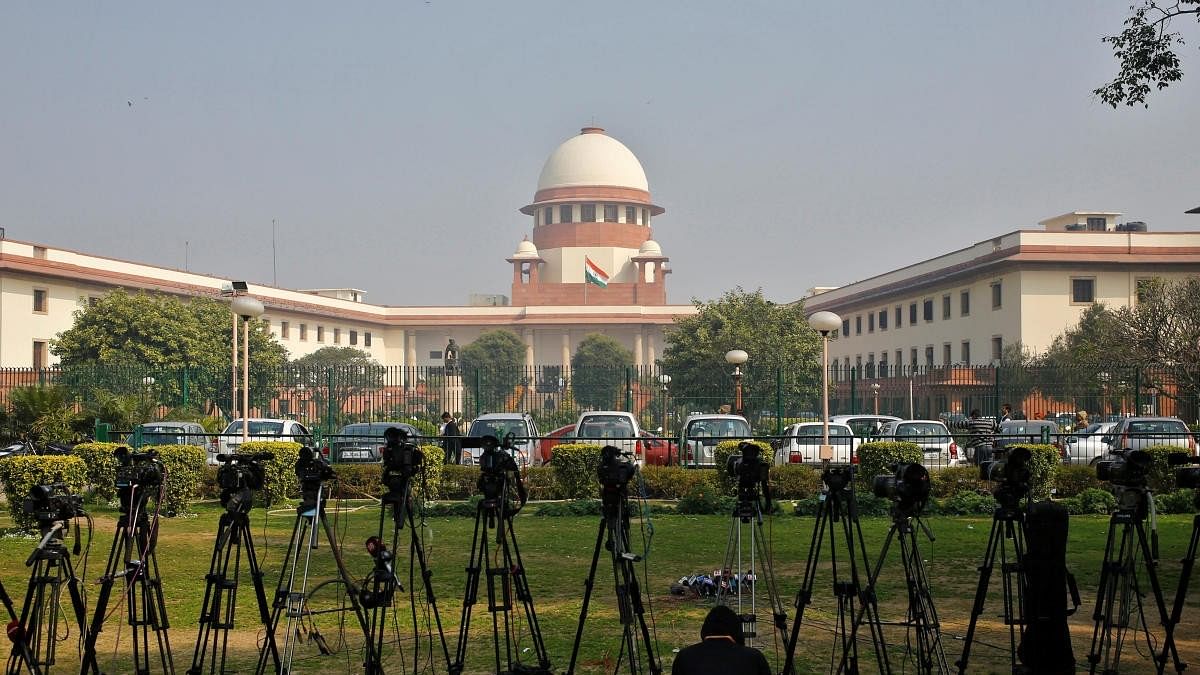
The Supreme Court of India.
Credit: Reuters Photo
New Delhi: The Supreme Court has said that the Protection of Women from Domestic Violence Act, 2005, which is a civil code enacted for a more effective protection of rights guaranteed under the Constitution, is applicable to every woman across the country irrespective of her religious affiliation or social background.
A bench of Justices B V Nagarathna and N Kotiswar Singh said the 2005 legislation is applicable to all women in order to protect women victims of domestic violence, occurring in a domestic relationship.
"The Act is a piece of civil code which is applicable to every woman in India irrespective of her religious affiliation and/or social background for a more effective protection of her rights guaranteed under the Constitution and in order to protect women victims of domestic violence occurring in a domestic relationship," the bench said.
The judgment was rendered on an appeal filed by a woman challenging an order of the Karnataka High Court in a matter connected with maintenance and compensation on September 10.
The bench set aside the orders of the high court as well as the first appellate court, while granting liberty to the man to file a fresh application under Section 25 of the Act, if so advised.
"The order for alteration, modification or revocation operates prospectively and not retrospectively....Thus, the applicant cannot seek its retrospective applicability, so as to seek a refund of the amount already paid as per the original order," the bench said.
In the case, the wife filed a petition under Section 12 of the Protection of Women from Domestic Violence Act, 2005, which was allowed by the magistrate in February 2015, granting Rs 12,000 per month as maintenance and Rs 1,00,000 towards compensation.
The husband did not then let in any evidence in the said proceeding.
However, being aggrieved by the order, he filed an appeal under Section 29 of the Act which was dismissed by the appellate court on the ground of delay. Thus, the orders attained finality.
The husband then filed an application under Section 25 of the Act before the magistrate, which deals with duration and alteration of orders, which was also dismissed. He claimed the woman was already employed and did not need maintenance and the order was obtained on fraud.
He filed a criminal appeal under Section 29 of the Act before the appellate court and it was allowed and the matter was remanded to the magistrate with a direction to consider the application filed by the husband under Section 25 of the Act, by giving an opportunity to both the parties to adduce their evidence and to dispose of the same in accordance with the law.
The wife filed a criminal revision petition before the high court, which was dismissed in April 2023, forcing her to file an appeal before the apex court.
The bench, however, said, "The magistrate while exercising his discretion under Section 25(2) of the Act has to be satisfied that a change in the circumstances has occurred, requiring to pass an order of alteration, modification or revocation".
The bench said the magistrate has to adjudge the change in the circumstances based on the material put forth by the parties in a case and having regard to the circumstances of the said case.
Under the Act, a change in the circumstances may be of either a pecuniary nature, such as a change in the income of the respondent or an aggrieved person, or it could be a change in other circumstances of the party paying or receiving the allowance which would justify an increase or decrease of the maintenance amount ordered by the magistrate, the court said.
